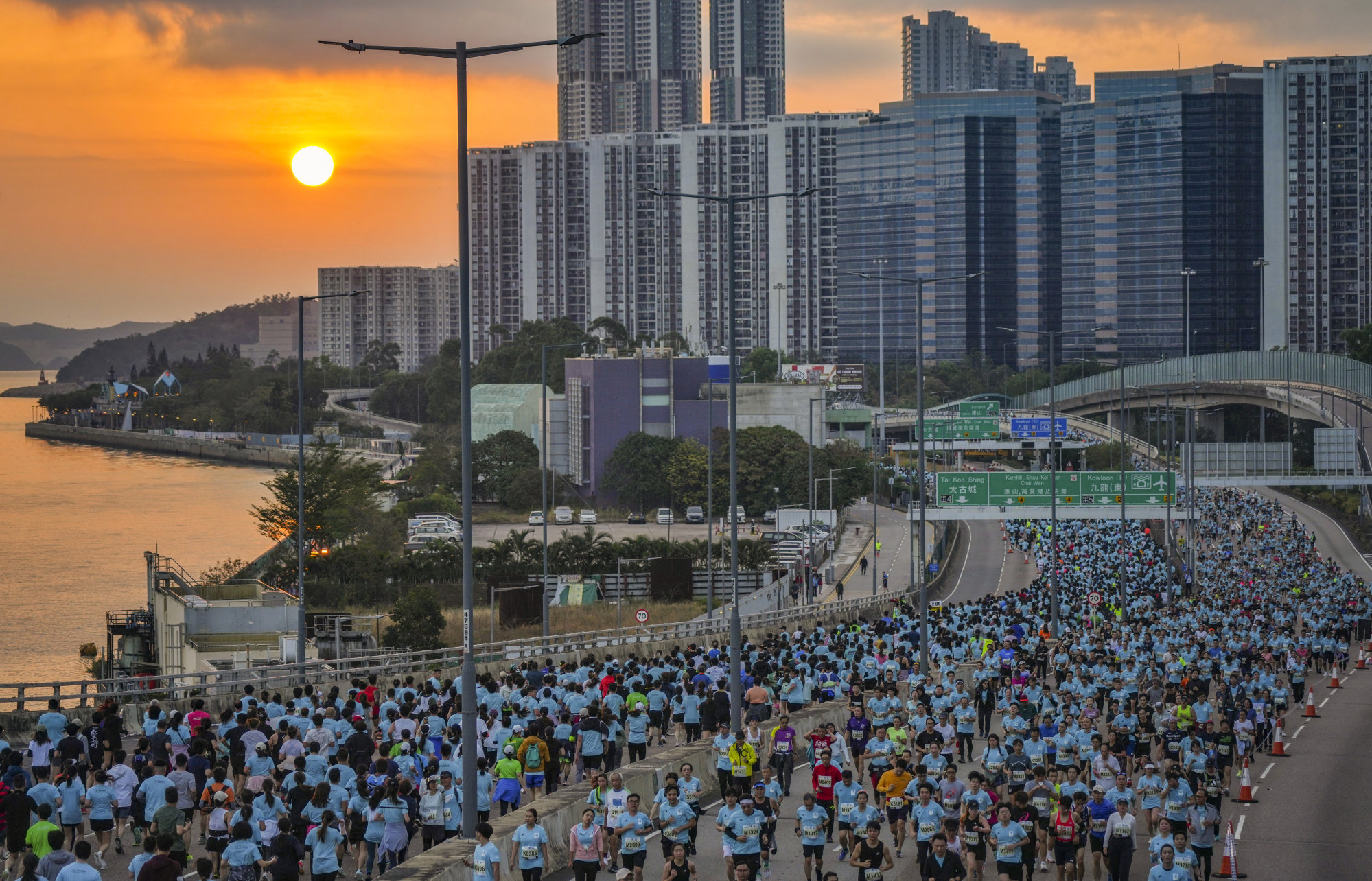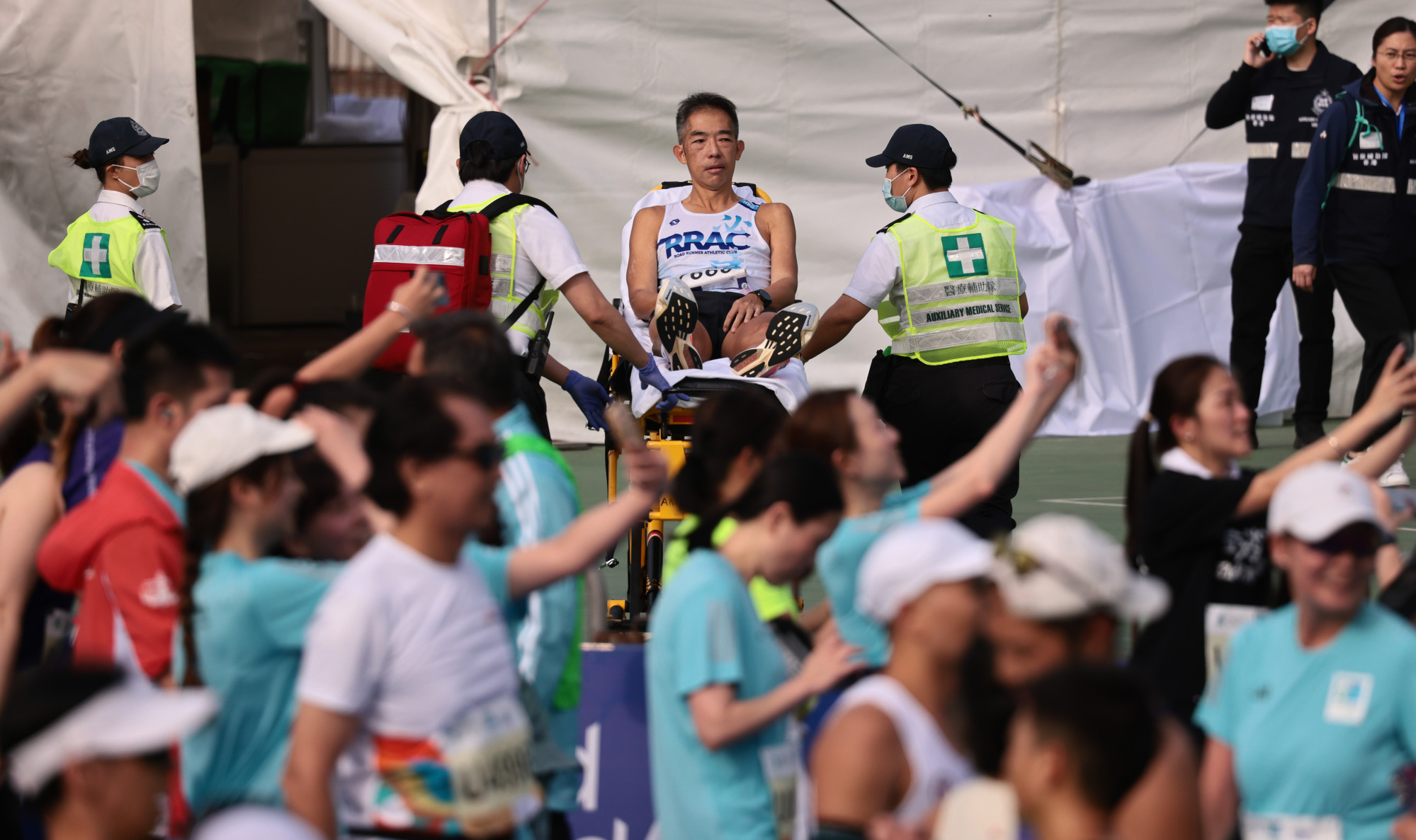
Hong Kong experts urge runners to get heart checks before races after marathon death
- Post learns Zhang Zhichong’s collapsed body was found at around noon after competing in Hong Kong’s biggest annual marathon and certified dead before 1pm
- ‘A thorough heart examination can find [hidden and congenital heart issues] out, but the biggest problem is how can you persuade the runners to go check,’ expert says
Marathon runners should have heart health checks before competing at events, medical and sports experts have warned after the death of a 30-year-old man in the wake of Hong Kong’s biggest annual race.
A police insider said Zhang Zhichong collapsed near a platform escalator at the Tin Hau MTR station near the finish line of the annual Standard Chartered Hong Kong Marathon at Victoria Park in Causeway Bay on Sunday.
He was discovered around noon, still wearing his running clothes and with his number bib, the source said.
Zhang was taken to Ruttonjee Hospital in Wan Chai but was pronounced dead on arrival just after 1pm.

The Hong Kong, China Association of Athletics Affiliates, which co-organised the event, confirmed the man had taken part in the half-marathon, but did not release his name. The association also expressed its condolences to the runner’s family.
“The organiser reminds all runners to closely monitor their post-race physical condition and allow themselves recovery after the race,” it said.
Dr Cheng Chi-man, the president of the Hong Kong Medical Association, said runners with a known history of medical conditions and risk should avoid unnecessary stress.
He said people who were uncertain about their fitness, in high-risk groups, such as men aged 40 or above, and smokers, should have medical tests before they ran in races.
Hong Kong marathon returns to pre-pandemic size, runner dies after taking part
Cheng added that if a runner experienced discomfort on a race day, it was best to pull out of the competition.
“The concept that you have to finish it [no matter what] is incorrect,” Cheng said. “If you can’t go any more, just stop and seek help immediately and the consequences can be different … you can still run next time.”
Among the battery of tests that can be used to check fitness to run are exercise electrocardiograms, which check the heart’s response to activity-induced stress.
Coronary angiograms can measure the blood flow in the heart’s arteries.

But for people with arrhythmia – irregular heartbeat – these tests may not provide as much useful information.
Lobo Louie Hung-tak, associate head of the health and physical education department at the Education University of Hong Kong, said the likelihood of a fatality among marathon runners was about one in 100,000.
Most of the deaths were related to hidden and congenital heart issues, he added.
“A thorough heart examination can find them out, but the biggest problem is how can you persuade the runners to go check,” he said.
Hong Kong Marathon 2024: mercury to dip to 15 degrees for annual event
But he added the suggestion of mandatory heart checks would trigger a large-scale debate.
Louie said organisers needed to adopt a balanced approach and existing screening requirements for full and half marathon events, which checked runners’ experience levels, were acceptable.
The incident marked the first time a runner had died just after a major race since 2018, when a 50-year-old man died three days after he collapsed during a 10km (6.2 mile) event.
A coroner’s court at the time ruled the man had suffered from an acute myocardial infarction – a heart attack.
Deaths from similar causes were also recorded in 2017, 2015, 2012 and 2006.

